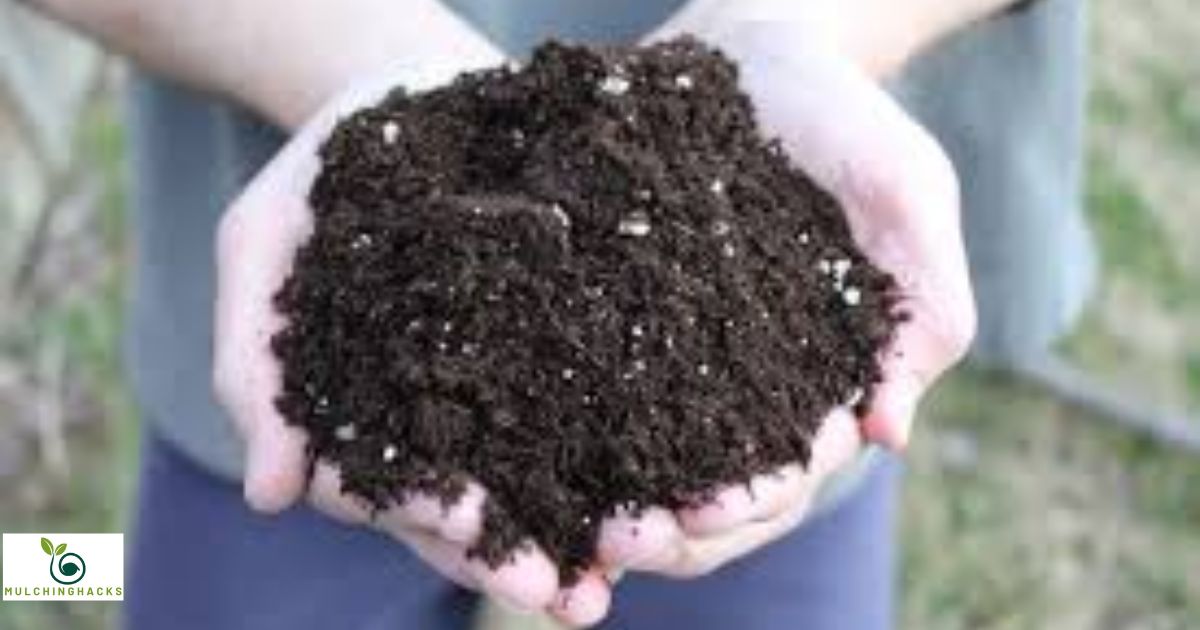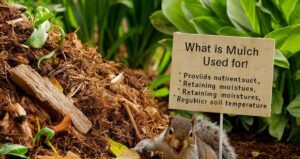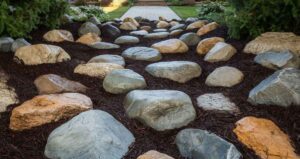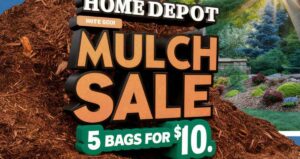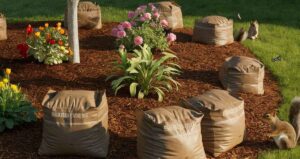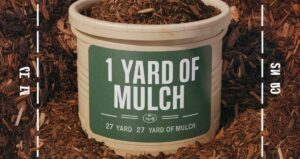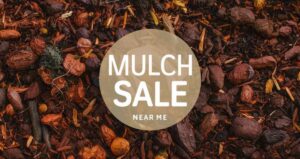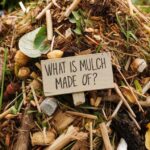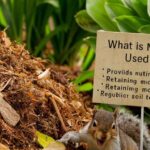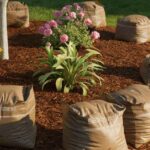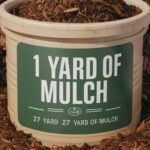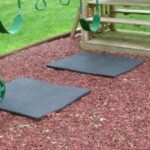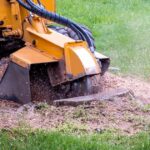Mixing mulch with potting soil involves blending organic matter, like wood chips or compost, with soil to enhance water retention, improve aeration, and enrich nutrient content for healthier plant growth.
Gardening enthusiasts often wonder if it’s a good idea to mix mulch with potting soil. The answer lies in the specific needs of your plants and the desired outcomes of your gardening project. In this comprehensive article, we’ll delve into the intricacies of combining these two soil components,
When considering whether to mix mulch with potting soil, it’s essential to understand the functions of each component. Potting soil, also known as potting mix, serves as the growing medium for your plants, providing a stable foundation for their roots. On the other hand, mulch, used as a top layer, plays a vital role in moisture retention, temperature regulation, and weed suppression.
A Table Benefits of Mixing Mulch with Potting Soil
This table outlines the advantages of combining mulch with potting soil, shedding light on the benefits that such a mixture can bring to your garden. It sets the stage for a more in-depth exploration of each topic in the following sections of this article.
| Topic | Unique Points |
| Enhanced Water Retention | Improved soil moisture levels |
| Improved Aeration | Enhanced root oxygen intake |
| Nutrient Enrichment | Increased organic matter content |
| Weed Suppression | Reduced weed growth |
| Temperature Regulation | Soil insulation and protection |
Can You Mix Bark With Potting Soil?
Gardening and horticulture often prompt questions about soil amendments and their compatibility. One common query is whether you can mix bark with potting soil.
Understanding the Fusion of Bark and Potting Soil
To make informed decisions about blending bark with potting soil, it’s essential to grasp the characteristics and roles of each component. In this section, we’ll delve into the distinct properties of bark and potting soil and how they can work in harmony.
Benefits of Mixing Bark with Potting Soil
As we progress, we’ll uncover the advantages that stem from combining bark and potting soil. From improved aeration to enhanced moisture retention, these benefits offer a wealth of possibilities for gardeners and plant enthusiasts.
Considerations and Best Practices
To ensure a successful mixture of bark and potting soil, this section will provide valuable insights into key considerations and best practices. Whether you’re an experienced gardener or a novice, the intricacies of this combination are crucial for fostering healthy and thriving plants.
Few Options What Is The Best Mulch To Mix With Soil?
The choice of the best mulch to mix with soil depends on your specific gardening or landscaping goals and the type of plants you are growing. Different mulches offer various benefits. Here are a few options:

Compost
Compost is an excellent choice for mixing with soil as it enriches the soil with organic matter and nutrients. It improves soil structure, and moisture retention, and promotes beneficial microorganisms. It’s suitable for a wide range of plants.
Well-Decomposed Leaf Mulch
Leaf mulch, when fully decomposed, is a fantastic option. It adds organic matter to the soil, improves aeration, and enhances water retention. It’s great for improving soil quality in garden beds.
Peat Moss
Peat moss can be mixed with soil to increase its water-holding capacity and improve aeration. It is often used to lighten heavy soils, making it suitable for plants that prefer well-drained conditions.
Vermiculite
Vermiculite is a lightweight mineral that helps with moisture retention and aeration. It’s ideal for improving soil structure, especially in containers and raised beds.
Perlite
Perlite is another lightweight material that improves soil aeration and drainage. It’s commonly used in potting mixes for container gardening.
Worm Castings
Worm castings are rich in nutrients and beneficial microorganisms. Mixing them with soil enhances its fertility and promotes healthy plant growth.
Straw or Hay
Chopped straw or hay can be used to mix with soil to improve water retention and aeration. It’s a great choice for mulching vegetable gardens.
Coconut Coir
Coconut coir is an eco-friendly alternative to peat moss. It retains moisture well and can improve soil structure. It’s often used in potting mixes.
Manure Compost
Well-composted manure can be mixed with soil to add nutrients and organic matter. However, it should be fully composted to avoid burning plants with excess nitrogen.
The best mulch to mix with soil depends on your specific gardening needs and the characteristics of your soil. Consider factors such as the type of plants you are growing, your soil type, and your watering preferences when choosing the appropriate mulch to enhance your soil’s quality.
Can You Put Mulch In Potted Plants?
Yes, you can put mulch in potted plants, and it can be quite beneficial. Mulch serves as a versatile addition to container gardening, offering advantages such as moisture retention, temperature regulation, and weed suppression.
Adding a thin layer of organic mulch, like wood chips or coconut coir, on top of the soil in your potted plants helps maintain consistent soil moisture, which can be especially valuable in arid conditions. It also acts as insulation, protecting plant roots from temperature extremes.
Furthermore, mulch reduces the likelihood of weed growth, enhancing the aesthetic appeal of your potted plants. When applying mulch, ensure you leave a gap around the plant stems to prevent rot and disease, and monitor soil moisture levels to avoid overwatering. Regularly refreshing the mulch layer will help maintain its effectiveness in your potted plants.
Can I Mix Mulch With Garden Soil?
Gardening dilemmas often include the question Can I mix mulch potting with garden soil? In this brief exploration, we’ll unravel the wisdom behind blending these two garden essentials.
Gardening Dilemma
Gardening enthusiasts often find themselves at a crossroads, wondering whether they can enhance their garden soil by incorporating mulch. This practice, though a subject of curiosity, carries its own set of intricacies that demand exploration.
The Science Behind the Mix
To address this gardening conundrum, we must first comprehend the science underpinning the soil-mulch combination. Examining how these two components interact and influence plant growth can shed light on whether this blend is a wise choice.
Benefits and Risks Unveiled
In this brief yet informative journey, we’ll delve into the potential advantages of mixing mulch with garden soil, from improved moisture retention to enhanced fertility. On the flip side, we’ll also navigate the potential risks, such as nutrient imbalances and water-related challenges
conclusion
blending mulch with potting soil can be a beneficial practice if done mindfully, offering advantages like improved moisture retention and enhanced nutrient content. It is crucial to strike the right balance to prevent issues such as waterlogging or nutrient imbalances.
The specific needs of your plants and your gardening goals are key to making this decision, ensuring that the mixture aligns with your garden’s unique requirements. Remember that while this combination can foster healthy plant growth, thoughtful consideration and periodic assessment are essential to maintain a flourishing and harmonious garden.
